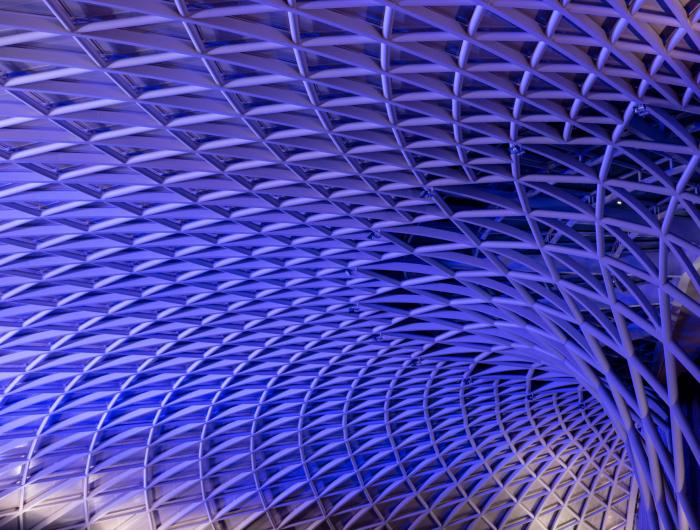In an era marked by growing environmental challenges, the pursuit of sustainability and carbon reduction has become a global priority. As cities expand and our constructed environment evolves, technology emerges as a key driver shaping our future. At the heart of this change lies the concept of "smart buildings," with "Building Management Systems" (BMS) playing a critical role in this sustainability-focused revolution.
Smart buildings go beyond being ordinary structures. They resemble intelligent ecosystems where technology and sustainability come together to create more efficient and environmentally friendly living spaces. They are designed to save energy, enhance occupant comfort, and reduce their impact on the environment. At the core of every smart building is the BMS, which acts as the building's brain. It manages lighting, heating, security, and many other aspects to ensure everything runs optimally.
In essence, the BMS is like a conductor for a smart building. It ensures everything runs smoothly, operates correctly, and uses energy intelligently.
In the future, the BMS will play an increasingly vital role in making our buildings more environmentally friendly. This means our buildings will be more efficient and more comfortable to live in while also being better for the planet.
Here are some reasons why:
Sustainability Mandates and Regulations
Governments worldwide are introducing increasingly stringent sustainability regulations and mandates. Buildings are significant contributors to energy consumption and carbon emissions. BMS enables compliance with these evolving standards by continuously optimizing energy use, thereby helping structures meet and exceed sustainability targets.
Rising Energy Costs
Energy costs are on the rise, making efficient energy management an economic imperative. BMS plays a crucial role in identifying energy wastage, reducing peak demand, and intelligently controlling energy-consuming systems, ultimately leading to substantial cost savings.
Resilience in the Face of Climate Change
The escalating frequency and intensity of climate-related events demand buildings that can adapt and respond effectively. Smart buildings equipped with BMS can proactively mitigate climate risks, protect occupants, and support the grid by participating in demand response programs during extreme weather events.
Human-Centric Spaces
The concept of a "healthy building" is gaining traction. BMS contributes to creating indoor environments that prioritize occupant comfort, well-being, and productivity. Enhanced indoor air quality, optimized lighting, and personalized comfort settings are becoming expectations rather than luxuries.
Technological Advancements: BMS technology continues to evolve rapidly. Advancements in IoT (Internet of Things), artificial intelligence, and data analytics are driving BMS capabilities to new heights. This enables even more granular control, predictive maintenance, and sophisticated energy optimization.
BMS technology is advancing quickly. Innovations in IoT (Internet of Things), artificial intelligence, and data analysis are taking BMS capabilities to new levels. This means we can have even more precise control, predict when maintenance is needed, and make energy use smarter.
The Building Management System (BMS) is set to become a crucial part of designing and running sustainable buildings in the future. As the world faces urgent challenges like reducing carbon emissions and adapting to a changing climate, smart buildings with advanced BMS technology offer a hopeful path forward. They're not just buildings; they're like living ecosystems that can adapt, learn, and change to tackle today's problems.
In a time where sustainability is important, the BMS will keep on being the backbone of buildings. They won't just provide shelter; they'll help create a healthier, more efficient, and more sustainable world. It shows how smart thinking and our commitment to a world where technology and nature work together can make a big difference. In the next few years, you'll see the BMS becoming even more important as we move towards a greener and more sustainable world.
In this fast-paced and innovative era, M&E companies play a crucial role. They bring valuable technical expertise to make the most of new technologies and energy-efficient systems. These engineering companies can design HVAC and electrical systems that incorporate the latest advancements, which not only reduce energy consumption but also create more comfortable and healthier indoor environments for people through tailored and cost-effective design solutions. Additionally, they can conduct in-depth analyses of a building's specific energy needs, helping predict maintenance requirements and preventing costly breakdowns, thus extending equipment lifespans. In a nutshell, these engineering companies are essential partners in ensuring that technological progress is implemented effectively, resulting in more sustainable, efficient, and energy-efficient buildings. Their expertise is vital in addressing today's sustainability and energy efficiency challenges.
Tailored Solutions
Every building is unique, and the needs of clients can vary widely. M&E design companies excel in customizing BMS solutions to meet the specific requirements of their clients. Whether it's a commercial office space, a healthcare facility, or a residential complex, M&E companies can design BMS that align with the goals and operational needs of the building, ensuring that the technology serves its intended purpose effectively.
Cost-Effective Design
M&E design companies understand the financial implications of their recommendations. They can balance the initial investment in BMS with the long-term operational savings. By optimizing systems and reducing energy consumption, M&E companies help clients achieve a rapid return on investment. This cost-effectiveness is particularly crucial in today's sustainability-driven climate, where clients are looking for solutions that benefit both the environment and their bottom line.




